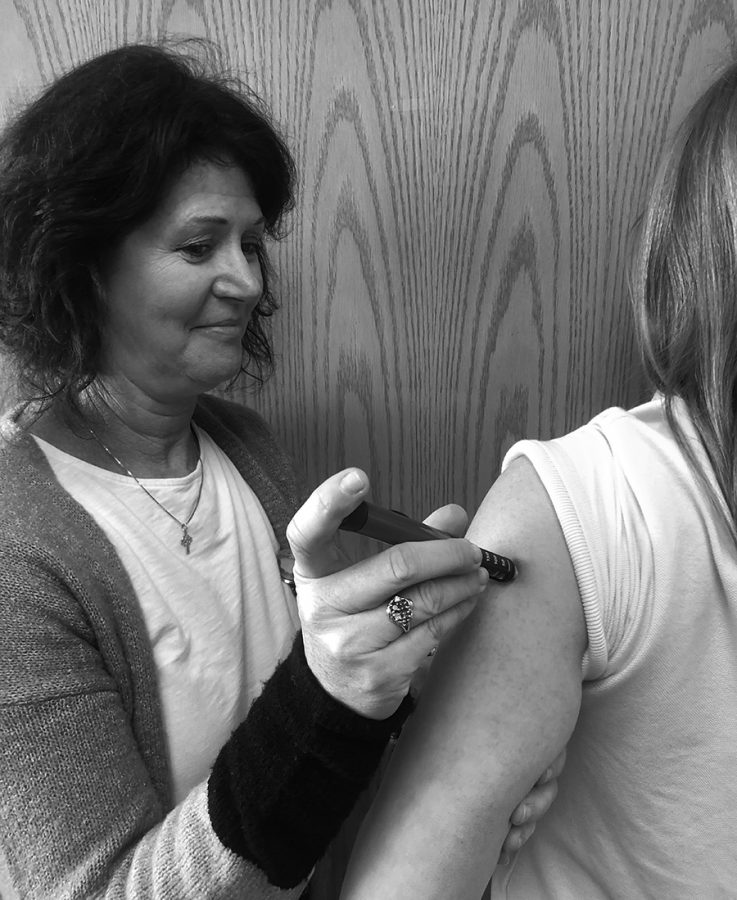Anti-Vaccine Movement causes outbreaks
Measles and mumps, illnesses once thought to be extinct for decades, are making new outbreaks across the world and the U.S. due to people refusing to get vaccinated. Many don’t get vaccinated because of the misconceptions regarding vaccines.
While most schools require vaccinations, Wahlert allows students to withdraw from that demand because of disbeliefs in vaccinations or for medical reasons. With old diseases making comebacks, will that change?
“Your reason for not having the vaccinations has to be notarized by the state,” said Beth Broderick, a nurse for the Holy Family Schools. “It is a form that you fill out, and it has to get an official stamp of approval from the state.”
The Anti-Vaccine movement has become a popular trend within the last few years, but with new science proving that diseases like HPV can cause cervical cancer, it makes the need for vaccines feel urgent.
“It makes me think about when polio and those kinds of diseases were causing so many illnesses and deaths. These vaccines put a stop to that, and now, they’re slowly coming back,” Broderick said. “I just don’t think it [refusing vaccination] is logical.”
There are rare cases in which some people have a reaction to vaccinations called Guillain-Barré syndrome (GBS). The syndrome can take up to days or weeks for the reactions to occur, and depending on the severity of the case, a patient may not be able to make a full recovery.
Although unlikely, if someone were to receive year’s worth of vaccines in very short increments of time, that is how they would contract GBS.
“In a case like that, it would be a medical exemption,” Broderick said. “But there are also misconceptions that vaccines cause autism and other social disorders which has been proven incorrect. I think that is a big reason why some people don’t want to get vaccinated.”
Robin Leibold, ‘19, who is prepping to go into the medical field for her career, is writing a research paper on vaccines titled, “The Benefits of Vaccinations Outweigh the Risks.” Leibold makes the point to encourage those who still fear vaccines due to false claims to educate themselves a little more.
“If you do the research, you see that not only has that ‘connection’ been falsified by many doctors and scientists multiples times, but also that those who have autism are very much valued members of our society who did not receive their social disorder from a vaccine,” Leibold said.
Despite their parents’, families’, or spouses’ wishes, with the epidemics making their comebacks, some people have taken it into their own hands to get vaccinated and protect themselves and others.
“I think some people are getting a bit of a wake up call,” Broderick adds. “I read an article not too long ago about a kid, who despite his parents’ beliefs, got caught up on all of his vaccinations.”
Vaccinations are not only vital to an individual’s health, but also to the health of those they encounter who may not be able to be vaccinated such as the immunocompromised.
“If I had a friend who didn’t get vaccinated for any reason but a medical reason like the rare cases of GBS and those who are immunocompromised, I would tell them that’s totally their choice, but I would prefer for the general health of the entire population that more people become vaccinated,” Leibold said.





